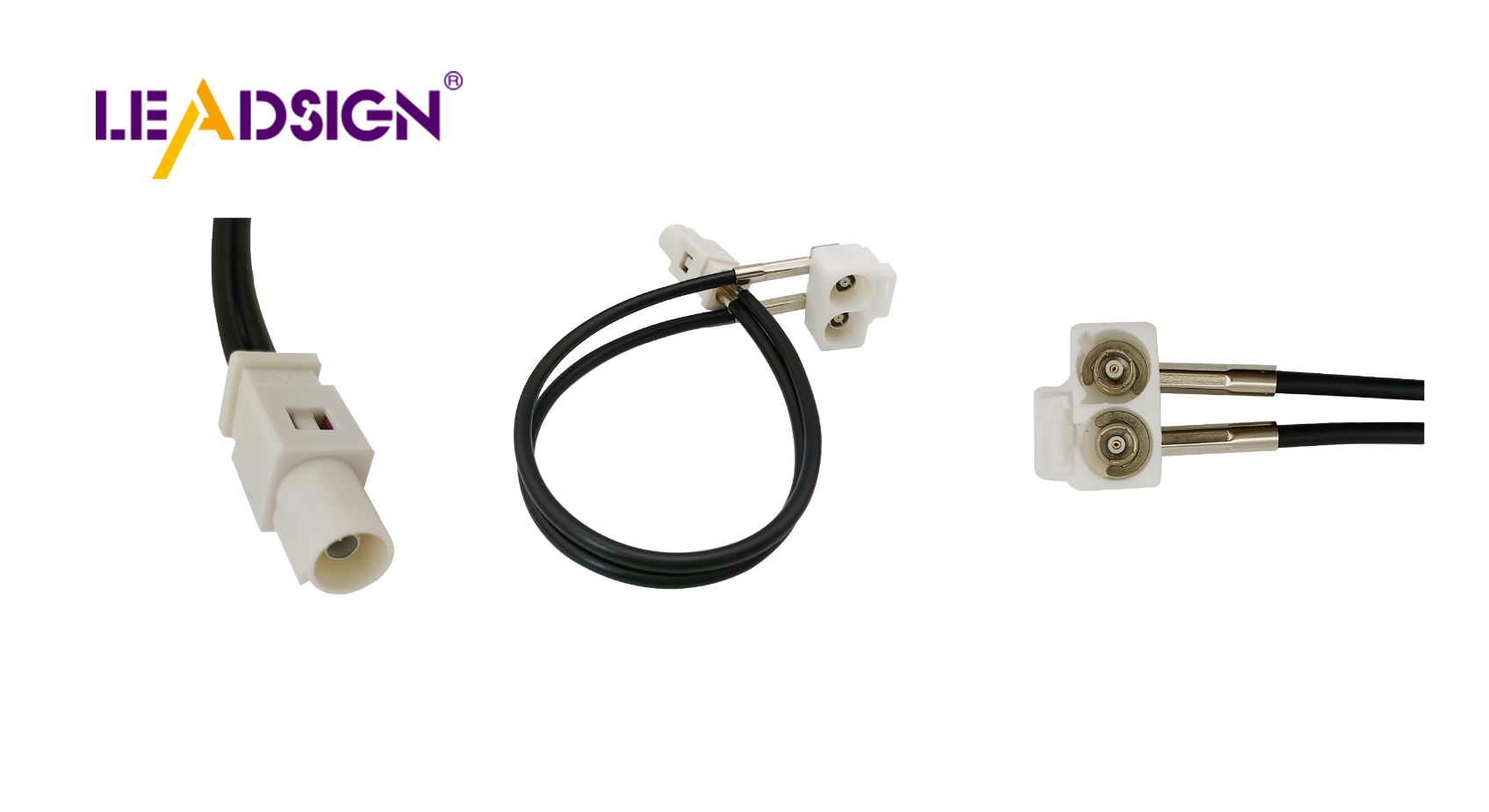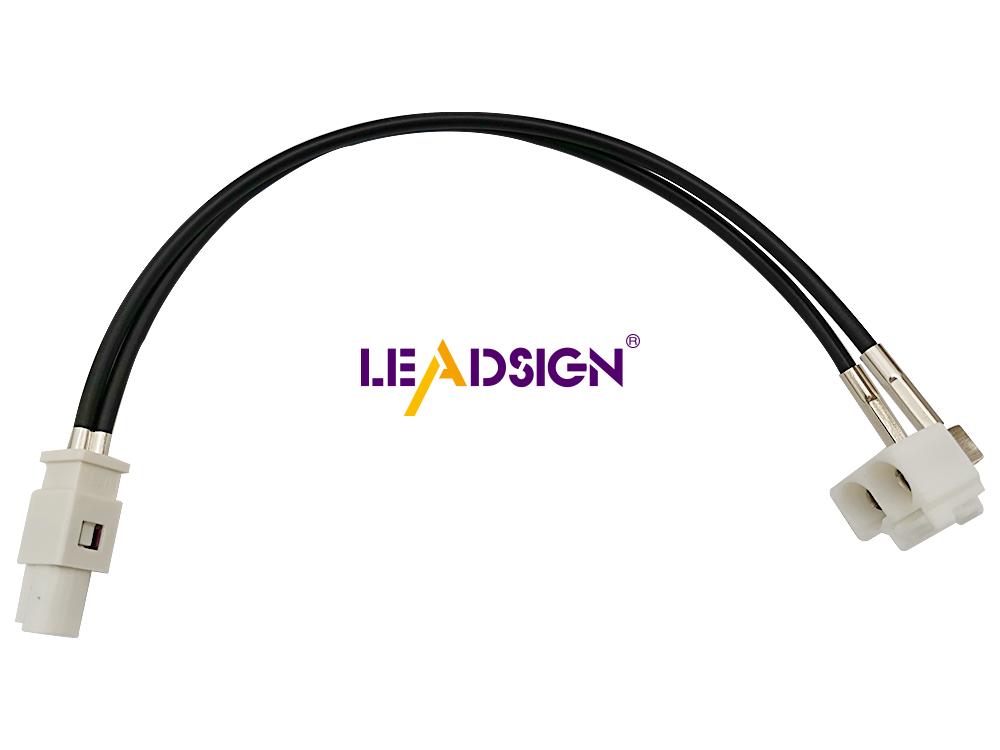Copper vs Aluminum: Choosing the Right 2 Pin Automotive Connector

Choosing the right car wiring wire for your vehicle is crucial. Copper is the best choice for car connectors as it efficiently carries electricity, making it ideal for strong currents. Copper's superior strength compared to aluminum means it is less likely to break during installation. While aluminum is lighter and more affordable, it requires careful handling to ensure optimal performance. Ultimately, copper's durability and longevity make it the top pick for car wiring wire.
Key Takeaways
Copper is the superior choice for automotive connectors due to its excellent conductivity, strength, and durability, ensuring reliable performance.
While aluminum is lighter and cheaper, it requires careful handling to avoid electrical issues and may need more frequent replacements.
Copper connectors maintain tight connections even with temperature changes, reducing the risk of failures in automotive systems.
Investing in copper wiring may have a higher initial cost, but it leads to long-term savings due to fewer repairs and replacements.
When selecting connectors, consider the balance between weight and performance; lighter aluminum can improve fuel efficiency but may compromise reliability.
Always follow safety regulations and guidelines when installing connectors to prevent electrical failures and ensure vehicle safety.
Regular maintenance and checks are essential, especially for aluminum connectors, to prevent rust and ensure optimal performance.
Comparing Copper and Aluminum Wires

Conductivity
Electrical performance differences
Copper is a better electricity carrier than aluminum. This means copper wires move electricity more easily. Copper works well in cars, helping parts run smoothly. Aluminum is lighter but resists electricity more, making it less efficient.
Impact on automotive systems
Choosing copper or aluminum affects car systems a lot. Copper wires make strong connections, lowering the chance of electrical problems. Aluminum needs careful setup to avoid loose connections. This is important for keeping your car safe and working well.
Strength and Durability
Mechanical properties
Copper wires are stronger than aluminum ones. Copper breaks less easily, so it's better for cars. Aluminum is lighter but can get damaged when installed. Think about these strengths when picking car wires.
Longevity in automotive environments
Durability matters too. Copper lasts longer than aluminum in cars. It doesn't rust easily, which is good for tough car conditions. Aluminum is cheaper but might need replacing more often.
Thermal Expansion
Effects on connector performance
Heat changes can affect connectors. Copper expands less with heat than aluminum. This keeps connections tight over time. Aluminum expands more, risking loose connections and failures.
Implications for automotive applications
In cars, heat changes are important. Copper keeps connections tight even with temperature shifts. Aluminum needs extra care to stay secure. This is key for your car's safety and efficiency.
Cost Considerations
Initial investment
Aluminum wiring costs less at first. It's cheaper than copper. This makes it a good choice if you have a small budget. It's great for big vehicles or many cars. But, cheaper price means it might not work as well.
Long-term cost implications
Copper wiring costs more at first but saves money later. It works better and lasts longer. Copper needs fewer repairs. It doesn't rust or break easily. This means you spend less on fixing it.
Copper stays strong in different weather. This keeps your car's electric parts safe. Even though copper wiring costs more at first, it stops problems and lasts long. In the end, copper is a smart buy. It gives you peace and works well.
Important Things for Car Connectors
Weight and How It Affects Cars
How Weight Changes Car Performance
Picking copper or aluminum for car connectors matters. Aluminum is lighter than copper. Lighter wires make cars faster and easier to drive. This helps in everyday driving and racing. But, aluminum might not be as strong as copper.
How Weight Affects Fuel Use
Car weight changes fuel use. Lighter cars use less gas. Aluminum wires help save fuel by being light. But, you need wires that work well too. Copper wires are heavier but work better and last longer. They cause fewer problems and cost less to fix.
How They Fit with Car Systems
How They Work with Current Systems
New connectors must fit with old car parts. Copper connectors are great because they carry electricity well. They fit easily with copper wires. Aluminum connectors need special care. They must match aluminum wires to work right. Copper is easier to use.
Getting Ready for Future Changes
Cars change over time. Copper wires and connectors are strong and ready for new tech. They handle more power and last long. Aluminum is cheaper but might need more changes. Picking copper keeps your car's wires working well as tech grows.
Safety and Rules to Follow
Following Car Rules
Why rules matter
When picking car connector materials, following rules is key. These rules make sure connectors work well in different situations. Copper connectors usually meet these rules because they handle heat and are strong. They don't rust like aluminum, which can rust over time. This helps keep your car's wires working well.
What happens if you don't follow rules
Not following car rules can cause big problems. Bad connectors might not last in tough car conditions, leading to failures. For example, aluminum connectors can rust if not treated right, hurting how they work. This can cause electric problems, which are unsafe for you and your car. Following rules helps stop these problems and keeps things safe.
Safety Concerns
Worry about breaking
Worrying about breaking is important when choosing car connectors. Copper connectors are more reliable because they don't rust and are strong. Aluminum is lighter but rusts more, especially in wet or salty places. This makes it more likely to break, causing electric issues in your car.
How to stay safe
To stay safe, follow good steps when putting in car connectors. Use copper connectors if you can, as they protect better against rust. Check connectors often for damage. If using aluminum, add coatings to stop rust. Doing this helps keep your car's electric parts safe for a long time.
When picking between copper and aluminum connectors, think about important things. Copper is better at carrying electricity and lasts longer. This makes it a good choice for a long time. Aluminum is lighter and costs less at first, but you have to be careful with it to avoid problems.
"Copper connectors work much better than aluminum ones for good connections and carrying electricity."
In the end, copper is more stable and works better for cars. We suggest choosing copper because it is reliable and lasts long. Always consider everything like cost, how well it works, and safety before deciding.
FAQ
Why is copper better for car connectors?
Copper is great at carrying electricity. It is strong and doesn't break easily. This makes it last long in cars.
Why pick aluminum connectors instead of copper?
Aluminum is light and cheap. It makes cars lighter, which saves gas. It's good if you need to save money.
How does connector weight change car performance?
Light connectors, like aluminum, make cars faster. They are easier to drive. But, you need them to work well too.
Are copper connectors costly over time?
Copper costs more first but saves money later. They need fewer fixes because they are strong and don't rust.
How do copper and aluminum handle heat?
Copper handles heat well and stays tight. Aluminum can get loose if not managed right.
What safety issues come with aluminum connectors?
Aluminum can rust in wet places. This can cause electric problems. You must install and care for them well.
Can copper connectors fit with old car systems?
Yes, copper fits well with old systems. It works great with copper wires and is good for upgrades.
Do copper connectors meet car rules?
Copper meets rules because it's strong and handles heat. It works well in different conditions.
What care do aluminum connectors need?
Aluminum needs checks for rust. Coatings help stop rust. Good care keeps them safe and working.
Is there a mix of both metals?
Yes, copper-clad aluminum mixes both. It is cheaper and still carries electricity well. It's a good choice for some needs.
See Also
Benefits of FAKRA PCB Connectors for Automotive Use
Benefits of HSD Connectors in Automotive Technology
Advantages of HFM Connectors for Automotive Solutions

